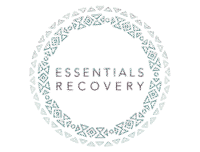Addiction recovery is rarely a solitary journey. While personal determination and commitment are essential, the presence of a strong support system can make a profound difference in the success of recovery. Support systems provide encouragement, accountability, and guidance, helping individuals navigate the challenges of addiction and maintain long-term sobriety. Understanding the importance of these networks, and knowing how to cultivate them, can dramatically improve recovery outcomes.
Recovery is a multifaceted process that addresses physical, emotional, psychological, and social aspects of a person’s life. A well-rounded support system can touch on all of these areas, offering practical help, emotional stability, and motivation during moments of doubt or difficulty.
Understanding the Role of Support Systems
Support systems are the network of people and resources that help an individual maintain recovery. These networks can include family members, friends, peers in recovery, mentors, counselors, and community resources. They provide guidance, encouragement, and accountability, which are critical for reinforcing healthy behaviors and reducing the risk of relapse.
Addiction often isolates individuals, leading to strained relationships and a sense of loneliness. Support systems counteract this isolation by creating connections that foster understanding, empathy, and shared experience. Being part of a supportive network allows individuals to feel valued, understood, and motivated to maintain their recovery journey.
Family Support and Its Impact
Family plays a unique and essential role in recovery. Loved ones often witness the struggles of addiction firsthand and are deeply invested in the recovery process. When families engage in the recovery journey, they can offer both practical support and emotional stability.
Effective family support involves open communication, empathy, and understanding. Families can encourage attendance at therapy sessions, help manage daily responsibilities, and provide a safe environment free from substances. Family counseling is also valuable, as it allows both the individual in recovery and their loved ones to address past conflicts, rebuild trust, and develop healthier communication patterns.
However, family support is most effective when it balances care with boundaries. Overprotectiveness or enabling behaviors can inadvertently hinder recovery. Families must learn to support without controlling, offering guidance and encouragement while allowing the individual to take responsibility for their own healing.
Peer Support and Community Connections
Peers who have experienced addiction themselves are often invaluable members of a support system. Peer support groups provide a safe space to share challenges, celebrate victories, and gain insights from those who have walked similar paths. Programs such as 12-step groups or peer recovery networks allow individuals to connect with others who understand the complexities of addiction and recovery firsthand.
These communities foster accountability, as members often encourage each other to attend meetings, complete treatment goals, and maintain sobriety. Peer relationships can also provide emotional support during moments of vulnerability, offering guidance from people who have navigated similar struggles. Feeling understood and connected to a community can significantly reduce feelings of isolation and hopelessness, which are common triggers for relapse.
Professional Support Networks
In addition to family and peers, professional support is a critical component of a comprehensive recovery system. Counselors, therapists, social workers, and addiction specialists provide structured guidance, coping strategies, and evidence-based treatments that enhance recovery outcomes.
Cognitive behavioral therapy, motivational interviewing, and other therapeutic approaches help individuals identify triggers, challenge negative thought patterns, and develop healthier coping mechanisms. Professionals also provide ongoing monitoring and adjustments to treatment plans, ensuring that individuals receive the most effective care tailored to their unique needs.
Medical professionals may also be involved, particularly when addressing physical aspects of addiction. Medication-assisted treatment, detox supervision, and ongoing medical care help ensure safety and improve the likelihood of long-term success.
Creating a Safe and Structured Environment
Support systems extend beyond people—they include the environments in which individuals live and interact. A safe, structured environment is essential for maintaining recovery. This means living in a space free from substances, reducing exposure to triggers, and establishing routines that reinforce healthy habits.
Recovery residences, sober living homes, and structured outpatient programs provide environments that promote accountability and support. In these settings, individuals are surrounded by peers who share similar goals, creating a sense of community and shared purpose. Structured living helps reinforce positive behaviors and allows individuals to practice new skills in a safe, supportive environment.
The Role of Encouragement and Accountability
Two key functions of any support system are encouragement and accountability. Encouragement provides motivation and reassurance, helping individuals recognize their progress and stay focused on their goals. Celebrating milestones, acknowledging effort, and offering positive reinforcement can strengthen confidence and resilience.
Accountability ensures that individuals remain committed to recovery strategies. Whether through scheduled check-ins, peer mentoring, or therapy sessions, knowing that someone is monitoring progress and providing guidance helps reduce the likelihood of relapse. Accountability creates a sense of responsibility, reinforcing the importance of maintaining healthy choices.
Emotional Support and Resilience
Addiction recovery often brings emotional challenges, including stress, anxiety, depression, and feelings of guilt or shame. Support systems provide a buffer against these emotional pressures by offering empathy, validation, and understanding. Knowing that someone cares and is available to listen can alleviate emotional burdens and foster resilience.
Support networks also help individuals develop emotional coping skills. By modeling healthy communication, offering guidance during conflict, and encouraging reflective practices like journaling or mindfulness, supportive individuals contribute to long-term emotional stability. Emotional resilience is a cornerstone of successful recovery, as it enables individuals to navigate challenges without returning to substance use.
Overcoming Barriers to Support
While support systems are vital, some individuals may face challenges in accessing them. Strained family relationships, social stigma, or a lack of peer networks can make it difficult to establish a strong support system. Addressing these barriers may involve seeking professional guidance, joining community recovery groups, or rebuilding connections gradually over time.
It is also important for those in recovery to recognize the value of boundaries. Not every relationship will be supportive or healthy, and learning to discern which connections foster growth is an important skill. A strong support system is built not only on availability but also on mutual respect, trust, and encouragement.
Integrating Multiple Layers of Support
The most effective recovery outcomes often come from integrating multiple layers of support. This may include family, peers, professionals, and structured recovery programs. Each layer addresses different aspects of recovery, from emotional and social support to practical guidance and medical care.
By creating a holistic support network, individuals are better equipped to handle challenges, reinforce healthy habits, and sustain long-term recovery. The combination of these elements creates a safety net, reducing the risk of relapse and promoting personal growth.
Encouraging Long-Term Engagement
Recovery is an ongoing journey, and support systems are most effective when they evolve alongside the individual. Long-term engagement with family, peers, and professionals helps ensure that recovery remains a sustained priority. Continued participation in support groups, ongoing therapy, and regular check-ins with mentors or sponsors helps maintain motivation and accountability.
As individuals progress in their recovery, support systems may shift to focus on maintaining independence, reinforcing new life skills, and celebrating achievements. This evolution is an essential aspect of building a life that is both fulfilling and resilient.
The Transformative Power of Connection
Ultimately, the importance of support systems in addiction recovery cannot be overstated. Connection, understanding, and encouragement form the foundation for successful recovery. Support networks provide guidance during challenges, reinforce healthy habits, and create a sense of belonging that fosters hope and resilience.
Those who engage fully with their support systems often experience improved outcomes, stronger emotional health, and a more sustainable, fulfilling recovery journey. Support is not a sign of weakness—it is a vital component of healing, growth, and lasting sobriety.
Conclusion: Strength in Support
Recovery from addiction is a complex and deeply personal journey. While personal determination plays a significant role, the presence of a strong, multi-layered support system enhances the likelihood of long-term success. Families, peers, professionals, and structured environments each provide critical guidance, encouragement, and accountability.
By cultivating these networks, individuals create a safety net that promotes resilience, emotional well-being, and sustained recovery. Support systems remind those in recovery that they are not alone, that progress is possible, and that a life free from addiction can be both achievable and fulfilling. Call us today at 855-509-1697.



